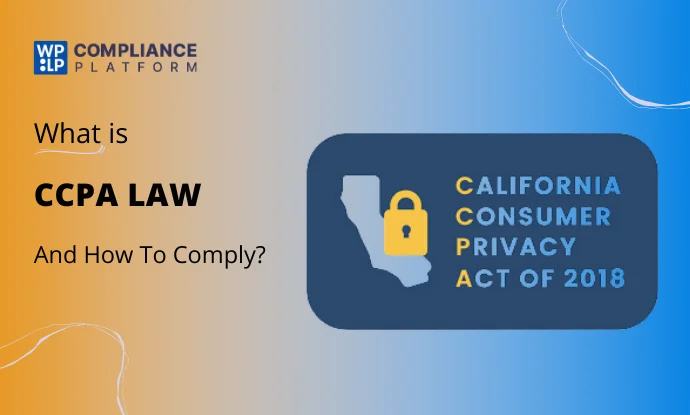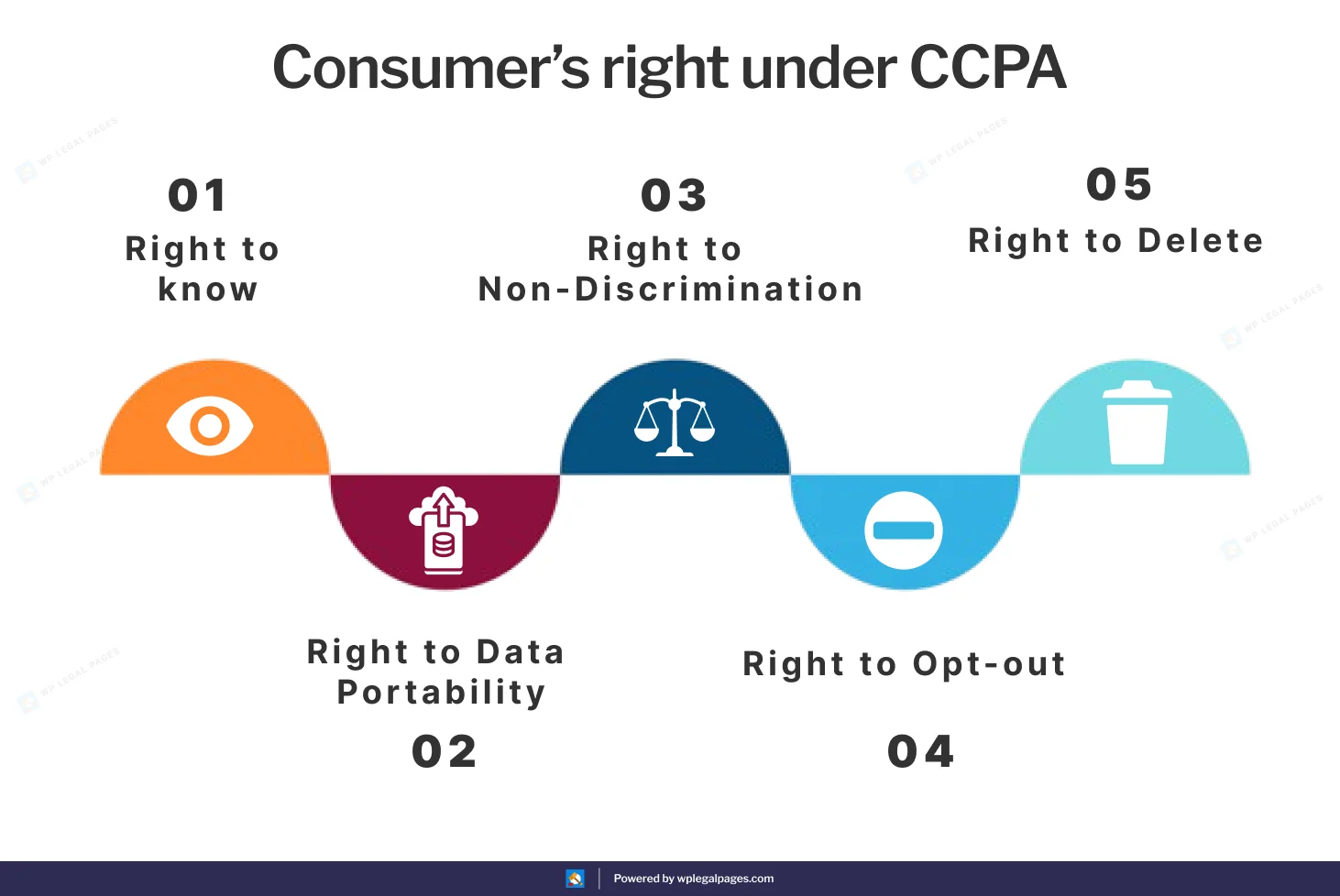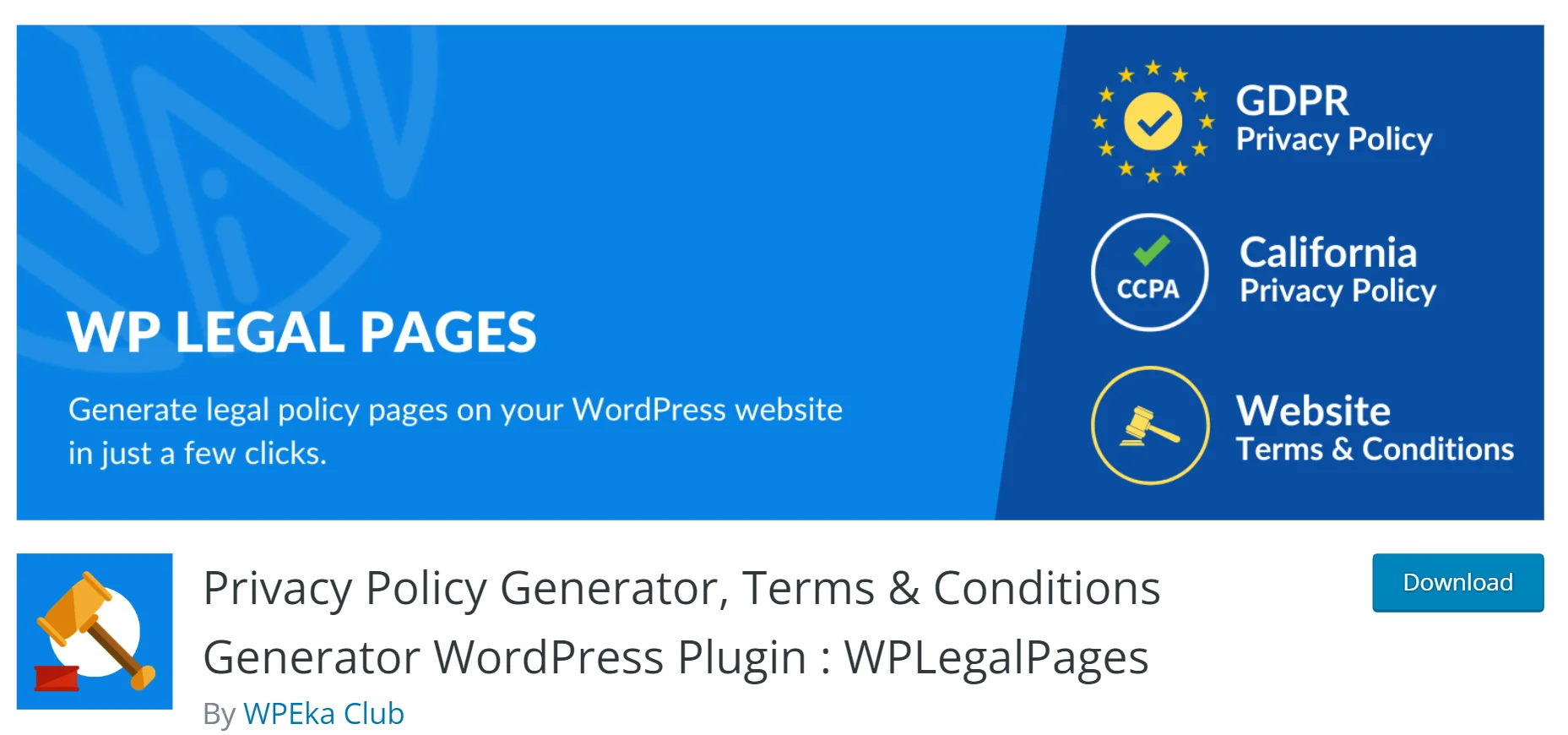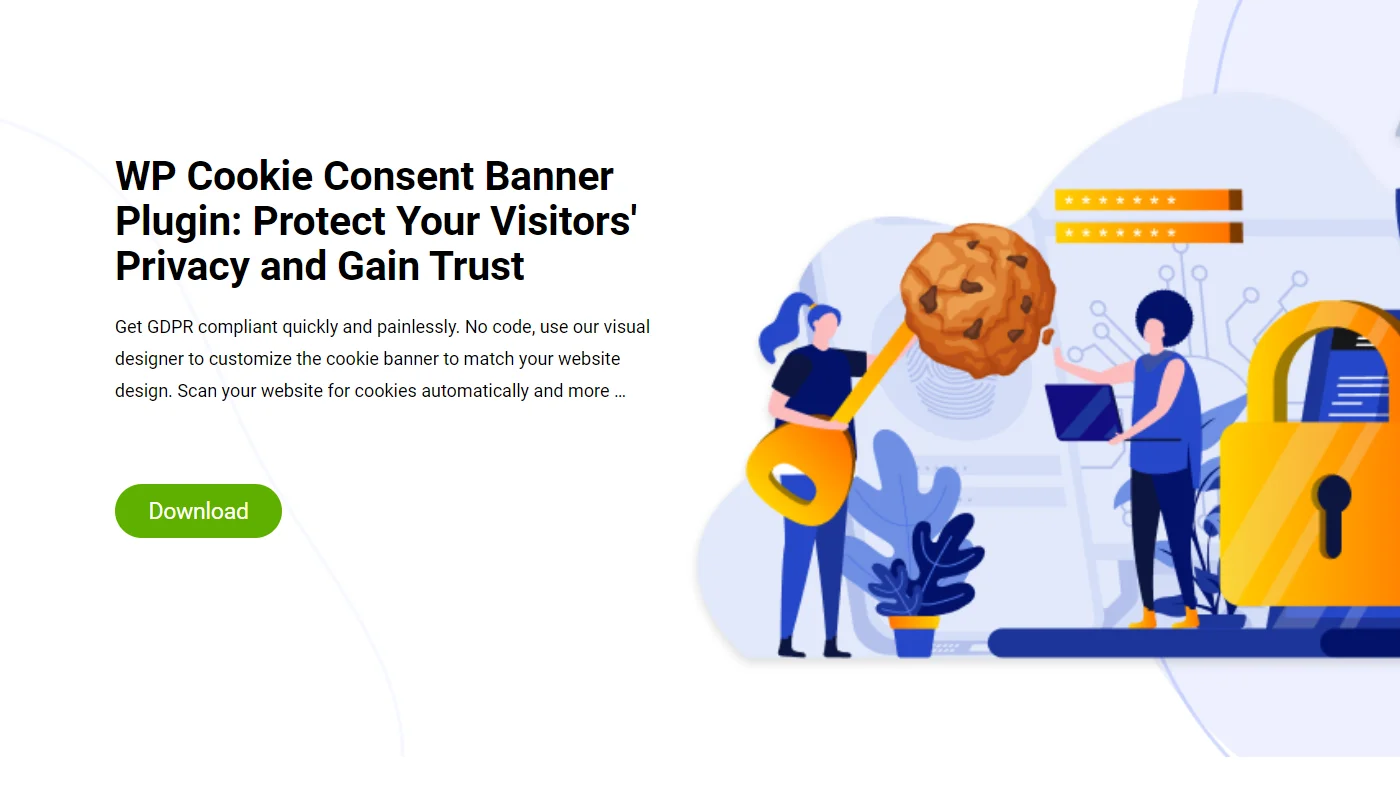What is the California Consumer Privacy Act (CCPA)

As a website owner, are you aware of the California Consumer Privacy Act (CCPA) law?
California Consumer Privacy Act is a federal law in the United States that helps to protect the personal information of the Californian customers from the data breaches.
In today’s digital world, laws like CCPA help to protect users’ privacy by controlling the data that businesses collect about them.
California Consumer Privacy Act is an extended California Privacy Rights Act (CPRA) law amendment.
In this article, we will explore the details of the CCPA law, its requirements, and how to ensure compliance with the law.
What is the California Consumer Privacy Act (CCPA)?
The California Consumer Privacy Act (CCPA) is a comprehensive data privacy law. California’s data privacy law is designed to enhance the protection of personal information for Californian residents.
The law passed on January 1, 2020. California’s privacy law grants Californian consumers greater control over their data and imposes various obligations on businesses that collect and process this information.
The CCPA provides California residents the right to know what personal information is being collected about them, how it is used, and if it is being disclosed or sold to third parties.
Under the law, consumers can request that businesses disclose the categories and specific pieces of personal information collected. Moreover, they have the right to be informed of the purposes for which their personal information is used.
In addition to these consumer rights, the CCPA introduces various business obligations. Companies that fall within the scope of the CCPA must provide clear and prominent notice to consumers regarding collecting, using, and sharing their personal information.
This includes informing consumers of their rights under the CCPA and how they can exercise those rights.
Who Must Comply With the California Consumer Privacy Act (CCPA)?
A statutory fine of up to $2,500 for inadvertent noncompliance and up to $7,500 for deliberate noncompliance applies to businesses that are found to have violated the CCPA. Depending on the quantity of impacted parties and the type of infraction, these fines may mount up rapidly.
Breaking the California Consumer Privacy Act (CCPA) can result in financial penalties, legal action by the California Attorney General or specific consumers, additional defense costs, and possible settlements.
Additionally, a business can experience long-term consequences from the harm to its reputation brought on by non-compliance. Consequences such as a decline in customer confidence and brand perception.
Being in the public eye for breaking privacy rules like the CCPA can have long-lasting consequences for a company, especially in the digital age when data privacy and consumer rights are becoming increasingly important.
What are the Consumer Rights Under CCPA Law

The California Consumer Privacy Act (CCPA) gives customers various rights about how businesses gather and use their personal data.
The CCPA’s consumer rights are as follows:
- Right to Know: Customers can ask a business to reveal the details of their personal data on file.
- Right to Delete: Customers can ask that any personal information they may have provided to a business be deleted.
- Right to Opt-Out: Customers can request to stop selling their personal information to other parties if it is selling it. It’s common to call this the “right to opt out.”
- Right to Non-Discrimination: When consumers use their CCPA rights, they are entitled to be treated equally. This includes not being refused goods or services and having pricing or rates differently.
- Right to Data Portability: Customers can transfer their personally identifiable information to another company and obtain it from a business in an organized, widely-used, and machine-readable manner.
The CCPA’s rights are intended to give customers greater control over companies’ use of their personal data.
How Businesses Can Comply With CCPA Regulations
Businesses can comply with the California Consumer Privacy Act (CCPA) regulations by taking several key steps:
- Understand CCPA Requirements: Learn about the CCPA’s particular clauses, such as those regarding data collection, consumer rights, and data protection.
- Data Mapping and Inventory: Conduct a thorough evaluation to determine the personal data gathered and its processing, sharing, and storage specifics.
- Update the privacy policy: clearly outline the kinds of data collected, the reasons for collecting it, the specifics of consumer rights, and the steps involved in exercising those rights.
- Data Protection Measures Into Practice: To protect customer data, implement organizational and technical measures like encryption, access controls, and security assessments.
- Consumer Rights: Provide procedures that allow customers to obtain information on time to exercise their rights to access, delete, and opt out of data sales.
- Consent Management: Establish a transparent consent procedure that includes opt-out choices for collecting and selling personal data, particularly children’s.
- Vendor Management: Examine and revise vendor agreements to guarantee CCPA compliance and appropriate customer data handling.
- Record-Keeping: To track compliance efforts and keep records of all data gathering, processing, and sharing actions.
- Frequent Compliance Audits: To evaluate continuous CCPA compliance and make required modifications, periodically conduct internal audits.
While these steps are essential for CCPA compliance, businesses should consider various tools and resources. Plugins such as WP Legal Pages and WP Cookie Consent help comply with the California Consumer Privacy Act (CCPA) regulations.
Here’s how these plugins can contribute to CCPA compliance:
WP Legal Pages– Privacy Policy Generator

WP Legal Pages is a WordPress plugin that provides ready-to-use templates for creating essential legal documents on websites. Legal documents include privacy policies, terms and conditions, disclaimer statements, and more.
To comply with the CCPA, businesses must ensure that their privacy policy includes specific disclosures, information about consumers’ rights under the law, and details about data collection and processing practices.
This plugin can help businesses generate and customize a CCPA-compliant privacy policy by incorporating the necessary clauses and disclosures required by the law.
WP Cookie Consent– Cokie Consent Management

WP Cookie Consent is designed to assist businesses in displaying cookie consent notices and obtaining user consent for using cookies in compliance with privacy regulations like the CCPA and the GDPR (General Data Protection Regulation).
The plugin allows customization of the cookie consent banner to include relevant information about the types of cookies used, their purposes, and options for users to manage their preferences.
As the CCPA requires, businesses must inform consumers about using cookies and similar tracking technologies on their websites and obtain consent where applicable. This plugin helps in meeting all these requirements.
Staying informed about privacy law and regulation updates is crucial for maintaining ongoing compliance.
CCPA Penalties and Fines for Non-Compliance
The California Consumer Privacy Act (CCPA) stipulates fines and penalties for non-compliance. Violations can result in financial penalties of up to $2,500 for each unintentional violation and up to $7,500 for each intentional violation.
Additionally, businesses that fail to remedy violations within 30 days of notice are subject to additional penalties. Businesses must understand and adhere to the CCPA’s requirements to avoid potential fines and penalties.
FAQ
The CCPA law stands for California Consumer Privacy Act, which improves consumer protection and privacy rights for Californians in the United States.
The California Consumer Privacy Act (CCPA) applies to for-profit businesses operating in California that meet specific revenue or data processing criteria. It grants privacy rights to California residents, enabling them to control their personal information.
Non-compliance with the CCPA can lead to fines of up to $7,500 per intentional violation and $2,500 per unintentional violation, as well as potential legal action and reputational harm for businesses.
Businesses can comply with CCPA by updating privacy policies to include required disclosures, implementing data security measures, honoring consumer rights requests, and providing opt-out mechanisms to sell personal information. Monitoring and reviewing compliance efforts is essential to ensure adherence to CCPA requirements.
Conclusion
The California Consumer Privacy Act significantly introduces additional data rights to consumers. At this point, we know that CPRA enhances the legislation, adding more protection and fixing specific issues.
These regulations and the GDPR’s initiatives to protect privacy and data rights significantly alter how companies conduct business online. Other states are considering or have already passed privacy laws. While some follow California law, others do not.
If your business falls under California privacy law, we recommend you use the WP Cookie Consent and WP Legal Pages plugins to ensure CCPA compliance.
If you’ve liked reading this article, check out our other engaging articles as well:
- General Data Protection Regulation (GDPR)
- The California Privacy Rights Act (CPRA)
- What is EULA and How to Create One For Your Website
Want to design a beautiful cookie consent banner for your eCommerce website? Grab the WP Cookie Consent plugin now!
